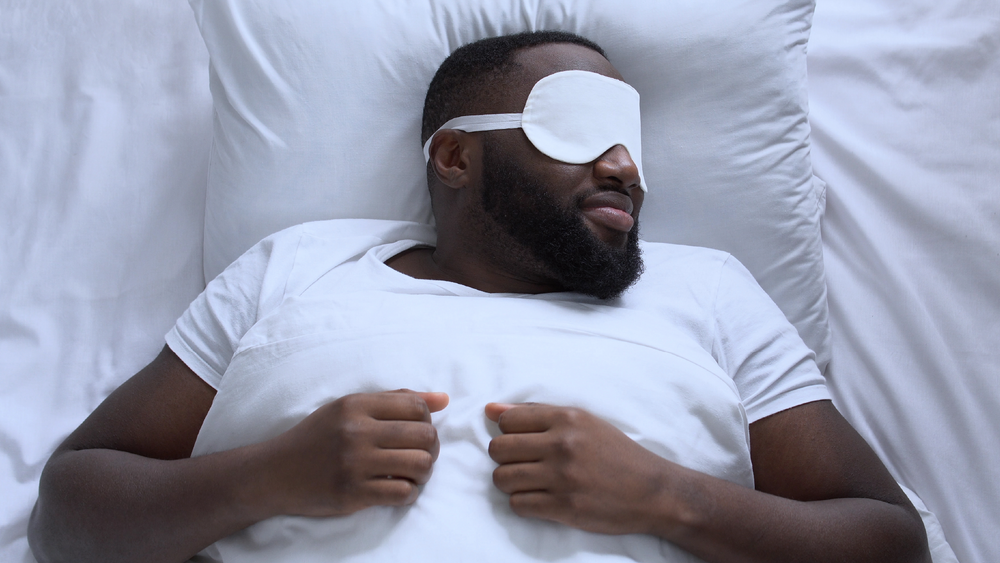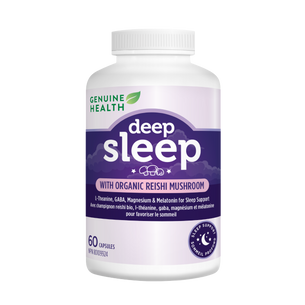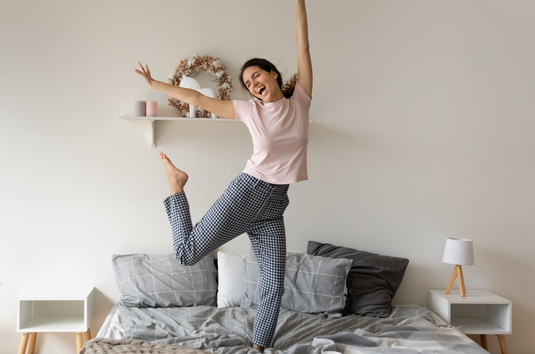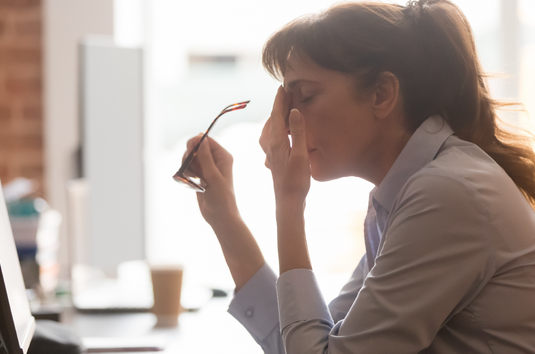5 Science-Backed Tips to Help You Sleep Better

One of the biggest issues affecting health and wellness right now is sleep. More people are sleeping less every night and experiencing worse sleep quality than ever before - and our lifestyles aren’t helping.
If you want to sleep better, here are 5 science-backed methods you should try.
1. Set a consistent sleep schedule
If you’re trying to sleep better, you need to start scheduling your sleep. Sound strange? Well, a whole host of research has shown that sleep schedules are one of the biggest factors affecting sleep quality.[1]
If you want to fix your sleep, you need to get strict about your schedule, including2:
- Going to bed and getting up at similar times every day
- Not staying in bed longer than you should
- Avoiding doing important work before bed e.g. paying bills or scheduling
These are some of the key factors affecting your sleep - but they’re also the easiest to fix. If you can set a consistent routine for your sleep schedule, you can help to reduce your sleep problems in no time.
2. Remember mealtimes are important
What you eat and when you eat can also affect your ability to sleep well. Research has found that irregular meal times are significantly associated with sleep disturbances like waking up during the night and struggling to fall asleep.[3]
The research also revealed that sleep quality can be affected by:
- Having dinner within 2 hours before bed time
- Not eating vegetables every day
- Skipping breakfast
If you’re trying to sleep better, it’s important to structure your mealtimes and avoid eating close to your bedtime. Eating vegetables can also help to promote better sleep, giving your body the vitamins and minerals it needs to promote better sleep.[4]
3. Make your bedroom ready for sleep
Your environment also matters a lot when it comes to sleep quality. We all have our preferred sleep set-up but research shows that a whole range of factors can impact your ability to fall asleep and stay asleep.[5]
Some of the things that might be wrong include[6]:
- A bad mattress or pillow
- Not enough blankets
- Too much noise
- Too much light
- Too hot or too cold
If you’re sleeping badly, try taking a look at the environment you’re in. Maybe the secret to better sleep lies in fixing your sleeping space.
While noise and temperature can often be hard to fix, there are some things you can do to change your sleep space. For instance, try listening to soothing sleep sounds or meditation to drown out your noisy neighbors. You could also invest in an eye mask to block out excess light.
4. Limit your social media use before bed
You’ve probably heard of avoiding screen time before bed, but new research shows that social media use can be especially damaging to sleep.[7]
A 2020 study found that using social media during periods of sleep latency - the time when you’re waiting to fall asleep after turning the lights out - changed the physiological functions of students and working professionals, negatively impacting the quality and length of their sleep.[8] If you want to sleep better, leave your stories until the morning!
5. Try calming your mind
If you have trouble winding down before bed, this can also have a big impact on your sleep. Research shows that anxiety can severely reduce sleep quality and this issue has been made significantly worse by the Covid-19 pandemic.[9][10]
To help calm your mind and reset your sleep/wake cycle, you might benefit from taking a sleep supplement like Deep Sleep. With soothing ingredients like reishi mushroom, magnesium and a low dose of melatonin, our Deep Sleep formula is science-backed, all natural and non-addictive.
To find out more about sleep, rest and burnout, read this next.
Sources
- Booker, L. et al. The role of sleep hygiene in the risk of Shift Work Disorder in nurses. Sleep 2020 Feb;43(2).
- Shimura, A. et al. Which sleep hygiene factors are important? comprehensive assessment of lifestyle habits and job environment on sleep among office workers. Sleep Health 2020 June;6(3):288-298.
- Tandon, A. et al. Sleepless due to social media? Investigating problematic sleep due to social media and social media sleep hygiene. Computers in Human Behaviour 2020 Dec;113.
- Ramsawh, H. et al. Relationship of anxiety disorders, sleep quality, and functional impairment in a community sample. Journal of Psychiatric Research 2009 July;43(10):926-933.
- Sher, L. COVID-19, anxiety, sleep disturbances and suicide. Sleep Med 2020 Jun;70:124


















































